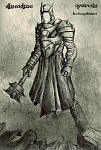Falco;145003 said:
Here! Here! (Or should that be "Hear! Hear!"? Drat... which one is it anyway? Now this is going to bug me... but getting back to the point...) A Religious Organisation has the right to have its own understanding of what marriage is, but the State as a reflection for the society AS A WHOLE should have as broadly inclusive a definition as possible. Otherwise, by definition, a marriage according to one person's set of beliefs is not a valid marriage according to another person's set of beliefs. Why should the State fix its definition of marriage to what one set of beliefs says, even if that's the majority view? The entire vision of a modern secular democracy is one that allows dissenting views to coexist.
I would just amend slightly what Falco said. I wouldn't say that the Judeo-Christian morality is "plain wrong" in this case. That is a value judgement. I would say it is not inclusive or universal enough for the basis of a law.

 Help
Help














